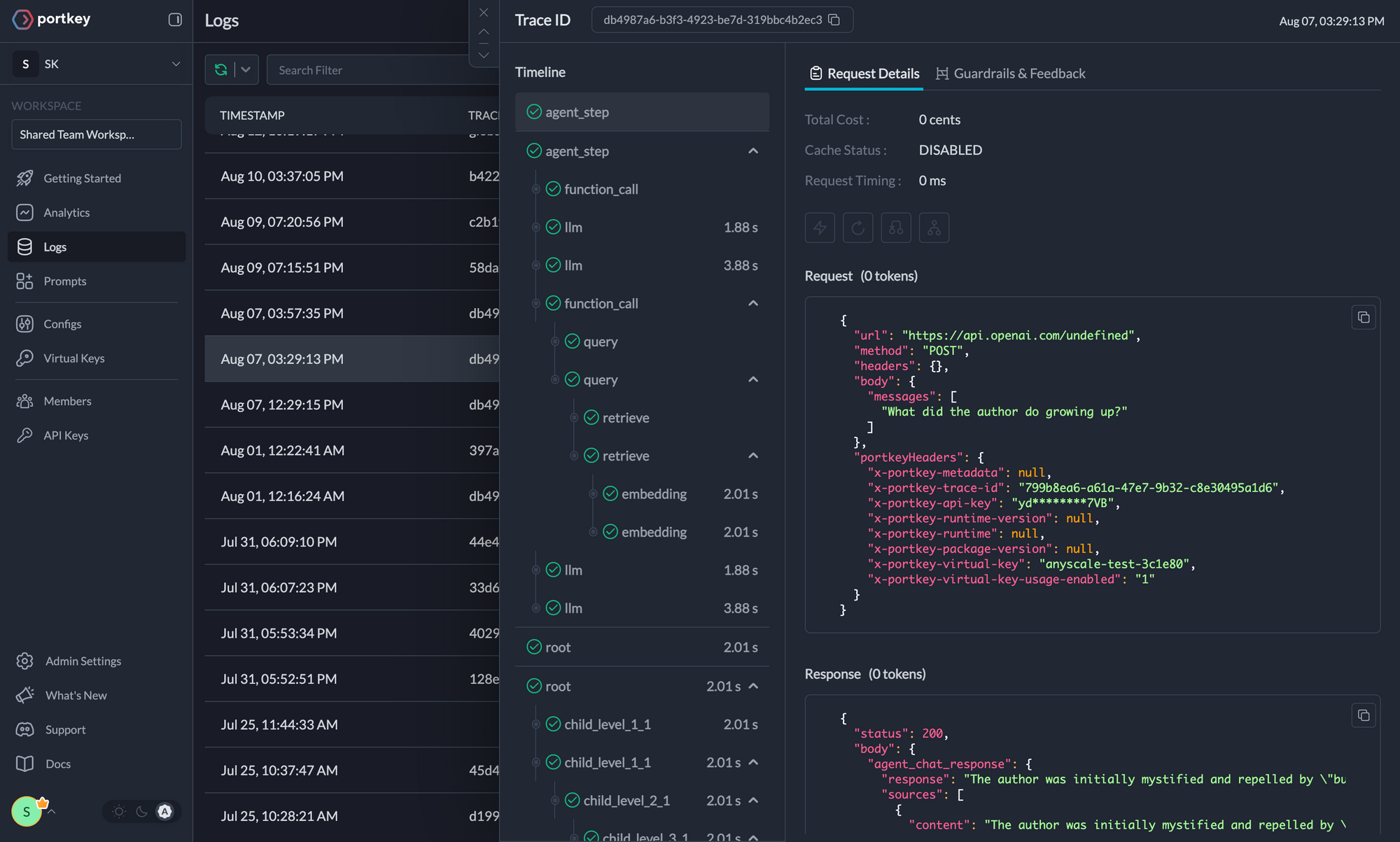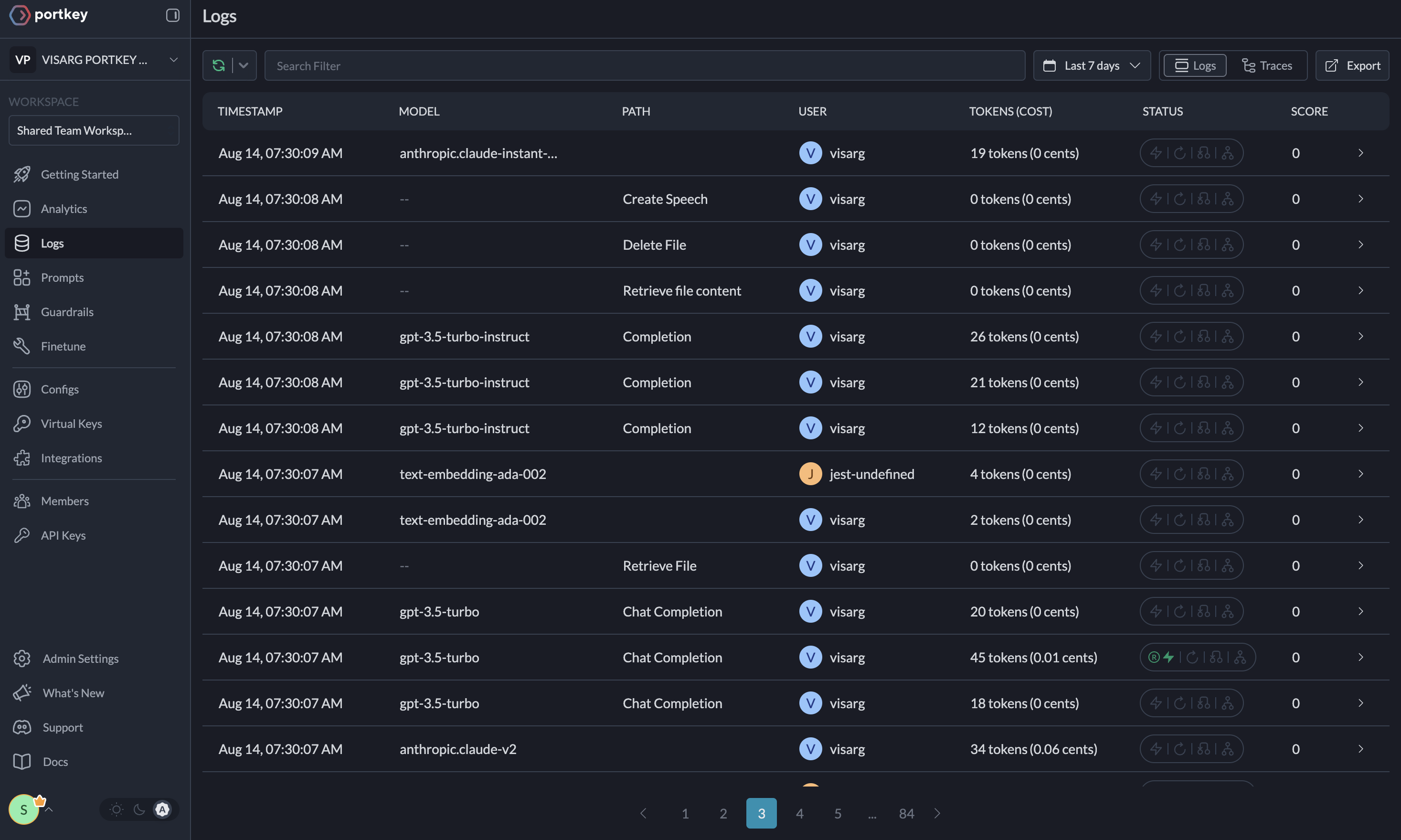 Portkey is a 2-line upgrade to make your AG2 agents reliable, cost-efficient, and fast.
Portkey adds 4 core production capabilities to any AG2 agent:
Portkey is a 2-line upgrade to make your AG2 agents reliable, cost-efficient, and fast.
Portkey adds 4 core production capabilities to any AG2 agent:
- Routing to 200+ LLMs
- Making each LLM call more robust
- Full-stack tracing & cost, performance analytics
- Real-time guardrails to enforce behavior
Getting Started
- Install Required Packages:
-
Configure AG2 with Portkey:Generate your API key in the Portkey Dashboard.
- Let’s Run your Agent
Here’s the output from your Agent’s run on Portkey’s dashboard

Key Features
Portkey offers a range of advanced features to enhance your AG2 agents. Here’s an overview| Feature | Description |
|---|---|
| 🌐 Multi-LLM Integration | Access 200+ LLMs with simple configuration changes |
| 🛡️ Enhanced Reliability | Implement fallbacks, load balancing, retries, and much more |
| 📊 Advanced Metrics | Track costs, tokens, latency, and 40+ custom metrics effortlessly |
| 🔍 Detailed Traces and Logs | Gain insights into every agent action and decision |
| 🚧 Guardrails | Enforce agent behavior with real-time checks on inputs and outputs |
| 🔄 Continuous Optimization | Capture user feedback for ongoing agent improvements |
| 💾 Smart Caching | Reduce costs and latency with built-in caching mechanisms |
| 🔐 Enterprise-Grade Security | Set budget limits and implement fine-grained access controls |
Colab Notebook
For a hands-on example of integrating Portkey with AG2, check out our notebookAdvanced Features
Interoperability
Easily switch between 200+ LLMs by changing theprovider and API key in your configuration.

